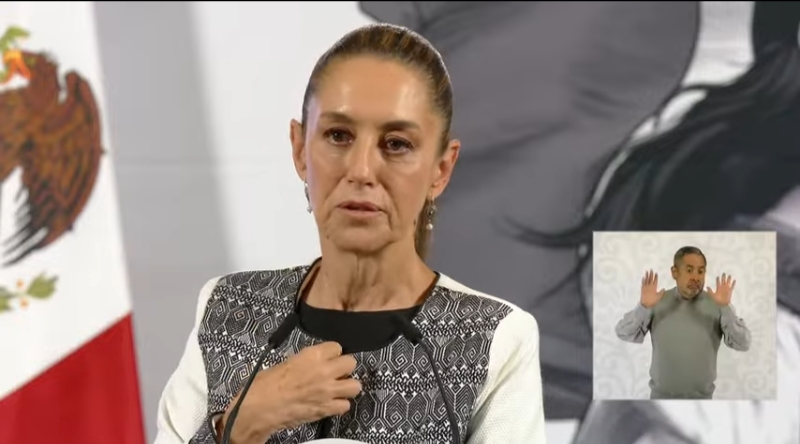No Tariffs in Exchange for Mexicans’ Biometric Data with the New ID: CURP?

Op-Ed:
By Anthony Ferrera,
President Claudia Sheinbaum, during negotiations over U.S. tariffs on Mexican products, introduced a bill in the Mexican Congress to add biometric data to the Mexican identification number called CURP (the Mexican version of Social Security), which currently lacks a photograph or signature. The new data would include facial scans, photographs, fingerprints, and signatures.
This comes after a demand from the U.S. Secretary of Security, who asked President Sheinbaum to grant the U.S. access to the biometric data of all Mexicans, both within and outside the country.
In recent press conferences, the president has been pressed to disclose the details of the conditions Mexico is accepting to address the tariff threats.
In most cases, the media requesting this information has not received a direct or detailed response. The answers have been limited to statements about Mexico’s good relations with the U.S. and ongoing discussions in working groups.
This Thursday, April 3, celebrations were already underway for the “Triumph” of maintaining the free trade agreement while imposing a 25% tariff on imported cars and on all products outside the agreement—justified as a penalty for Mexico’s inability to control fentanyl production.
“It’s an excellent work by the president’s administration,” voices said during the morning press briefing, even though it is well known that the tariffs would harm the U.S. more than Mexico, its number one trading partner.
The economic interdependence between the two countries is unbreakable, as the U.S. lacks sufficient agricultural production and the U.S. corporations benefit from Mexico’s cheap labor force in industries such as auto manufacturers, which pay wages below the U.S. minimum.
Handing over the biometric data of all Mexicans to the U.S. is not cooperation—it would be an act of subordination, regardless of claims to the contrary. The secrecy surrounding the concessions made during tariffs negotiations between Mexico and the U.S., led by Marcelo Ebrard in Washington, has been anything but transparent, with little pressure for accountability by the public whom “many don’t understand what tariffs are” said a journalist to Sheinbaum at today’s press conference.
It is worth recalling that Marcelo Ebrard, as foreign minister during President López Obrador’s administration, Ebrard handed over Mexican’s biometric data to a single French company whose only other client is Raytheon, whose main client is the Pentagon. This occurred during the digitization of Mexican passports in 2021, marketed as a positive initiative.
Another announcement made by President Sheinbaum this week— at the peak of negotiations — was the imposition in Mexico of U.S.-styled standardized medical protocols on all doctors, both in private and public healthcare. These protocols will primarily benefit foreign pharmaceutical companies, most of which are U.S.-based.
“These medical protocols can be compared to genetically modified seeds—such as transgenic corn—which are patented and can only be purchased and used under strict franchise-like economic rules.” Says Ruchard Huff, economic professor.
Such protocols have already destroyed the U.S. healthcare system, turning it into a mere business transaction where doctors are no longer free to treat patients unless they follow mandates promoted by big pharmaceutical companies and health insurers.
These protocols violate the doctors’ oath to prioritize patient care, as human illnesses, though similar, manifest differently in each individual. Doctors should have the freedom to determine the best treatments for their patients—but these protocols deny that right, forcing them to prescribe only approved drugs and procedures.
This morning’s briefing ended with a video celebrating women in history after a handful of journalists applauding the “victory” of undisclosed negotiations that can shape the future of Mexico’s healthcare system. But what was revealed this week were some of the concessions: Mexicans’ biometric data and the imposition of U.S. medical protocols on Mexico’s healthcare system. The question remains—how much more?
You respect sovereignty, but if you give permission… is that okay?
Today’s press conference, April 3, 2024:
Yesterday’s Press Conference April 2, 2024
Press conference April 1, 2025:




